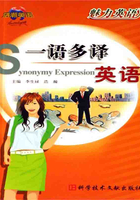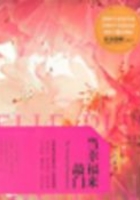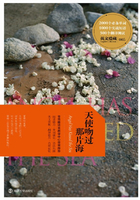Facing South
An old friend used to say to me, “When you are thinking of taking a new house, go and see it on a dismal day. If you like it then, you need not doubt about liking it in fine weather.” We all enjoy the sun. The sun is the source of heat and life to the earth. Yet people are still to be found who deliberately shut out the sun from their rooms, and are unmindful of the Italian saying that where the sun does not go the doctor does. A succession of dull days damps down the spirits. In this country, especially, we know the value of “facing south”.
Are we not like houses? We have eyes instead of windows, but we face south, north, east, or west. Who does not know the men and women facing north? Hard and cold, never letting a ray of sunshine into their souls, they stand pitilessly away from all the cheers and warms of our poor humanity. They are the people who pour cold water on all our enthusiasms, have no faith in human nature, no sympathy with human suffering; who leave the lame dog at the stile. We know the futility of approaching them in the hour of distress or trouble.
Most of us, it is to be feared, face either east or west. Part of us is in the sun, part in the shadow. We are easily depressed or exalted. We talk of our dual personality, and do nothing to cultivate the better part. But there are a few people who, like an attractive house, face south. One never goes to them in vain. They look on the sunny side of things; they see obstacles only to surmount them. Coming into their presence is like coming into a sunny room. The dull care or the throbbing trouble disappears. “God’s in His heaven, all’s right with the world” is their motto.
Sunny people are not necessarily well-to-do people. The best relative the writer recalls, was an aunt who lived in a tiny country cottage and maintained an old-world dignity on ninety pounds a year. In hours of ease a well-read, charming companion, she was a veritable tower of strength and a refuge in times of tribulation. She would create cosmos out of the chaos of a broken household; she literally bound up the wounds and salved the sickness of innumerable kinsmen and neighbors; every delicate child in the family passed through her hands; and at the appropriate seasons she would produce from her store some wondrous little gifts.
You must know such people. They are not rich people, perfectly healthy, or people without sorrows. On the contrary, they have had a full measure of misfortune. But they have never faltered in their outlook on life, in their supreme faith in all things working together for good, in their belief that they are in this world to help where help is needed. What a consolation such people are! We go to them in entire confidence. We leave them the better and the brighter, with a firmer step, and the determination to win through our difficulties. They are “facing south”.
曾经有一个老朋友这样跟我说:“如果你打算买新房的话,就要在阴天去看房。因为如果阴天时的房子你也喜欢,那晴天的时候就更不用说了。”我们都喜欢阳光。太阳是地球上热量和生命的来源。然而,也有些人故意逃避阳光,他们不把意大利谚语“没有阳光,就有医生”放在心上。接连不断的阴晦天气会让人情绪低落。特别是在这个国家,“朝南”的价值不言而喻。
我们不就像房屋吗?只不过我们拥有的是眼睛而不是窗户。但是我们可以随意朝南,朝北,朝东,或朝西。有谁不认识那些朝北的男女呢?他们冷酷,无情,从不让一缕阳光进入他们的灵魂;他们漠然地远离平凡人的快乐和热情;他们打击我们的积极性,对人性缺乏信心,对他人的遭遇也缺乏同情心;他们还把瘸了腿的狗丢弃。我们知道,悲伤或是遇到困难时,向他们求助只能是徒劳。
对于大多数人而言,他们恐怕不是朝东就是朝西。有些人喜欢呆在阳光下,有些人则喜欢呆在阴影里。我们容易沮丧,也容易兴奋不已。我们大谈双重性格,却不去挖掘我们的强项。但还是有少部分的人,就像有吸引力的房子一样,是朝南的。只要向他们求助,就一定会成功。他们总能看到事情光明的一面,遇到麻烦就去克服。跟这些人相处,就好像走进了一间充满阳光的房间,你的焦虑和烦闷都会随之消失。他们的格言是:“上帝就在天堂,世间一切都很美好。”
快乐的人不一定富有。在我的记忆中,最亲近的人就是姨妈。她居住在一个乡村小屋里,靠每年90英镑的收入维持着其古式的尊贵生活。在生活安逸时,她是一个博学可爱的伙伴;在艰苦岁月中,她又是一个名副其实的靠山和避难所。她会将破碎的一家人从混乱中解救出来;她逐一为无数的亲属和邻里包扎伤口,减轻伤痛;她悉心照顾每一个娇弱的孩子。每当节日来临,她都会适时地从自己的箱子里取出自制的小礼物送给我们。
你一定也认识这样的人。他们不是富人,也不是身体强健或没有悲伤的人。相反,他们曾经历过各种不幸。不过,他们从未改变过看生活的视角,他们坚信一切都会变得美好。在他们的信念中,来到这个世界上就是为了帮助需要帮助的人。这是多大的慰藉啊!我们怀着十足的信心走向他们,带着更愉悦、更美好的心情,迈着稳定的步伐离开他们,决心去战胜一切困难。他们就是“朝南”的人。
1. Are we not like ? We have eyes instead of windows, we face south, north, east, or west. does not know the men and women facing north? Hard and cold, never letting a ray of sunshine into their , they stand pitilessly away from all the cheers and warms of our humanity.
2. Most of us, it is to be feared, either east or west. Part of us is in the , part in the shadow. We are depressed or exalted. We talk of our dual personality, and do nothing to cultivate the part. But there are a few people who, an attractive house, face south.
1. 特别是在这个国家,“朝南”的价值不言而喻。
2. 有些人喜欢呆在阳光下,有些人则喜欢呆在阴影里。
3. 跟这些人相处,就好像走进了一间充满阳光的房间,你的焦虑和烦闷都会随之消失。
1. One never goes to them in vain.
in vain:徒然;无效
2. On the contrary, they have had a full measure of misfortune.
on the contrary:相反















